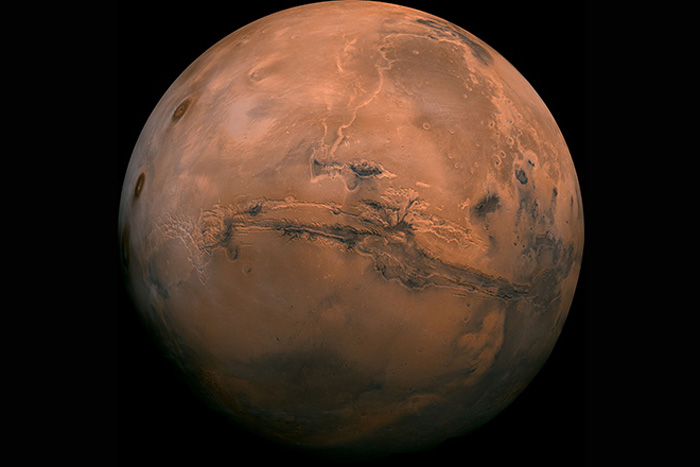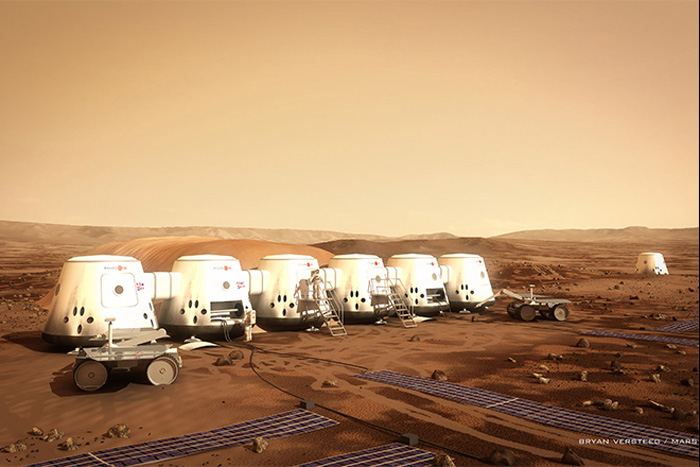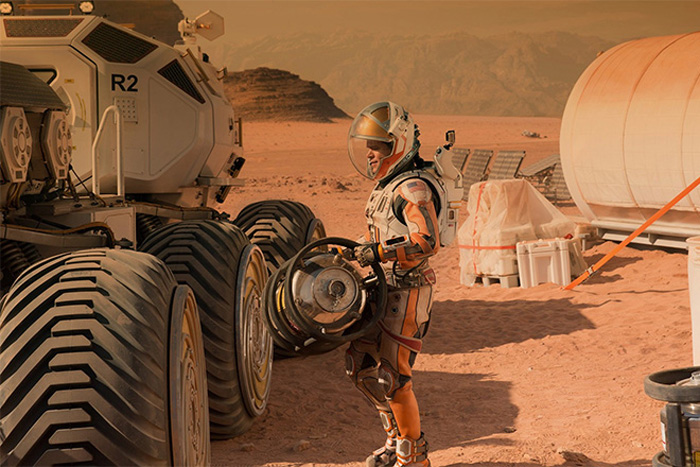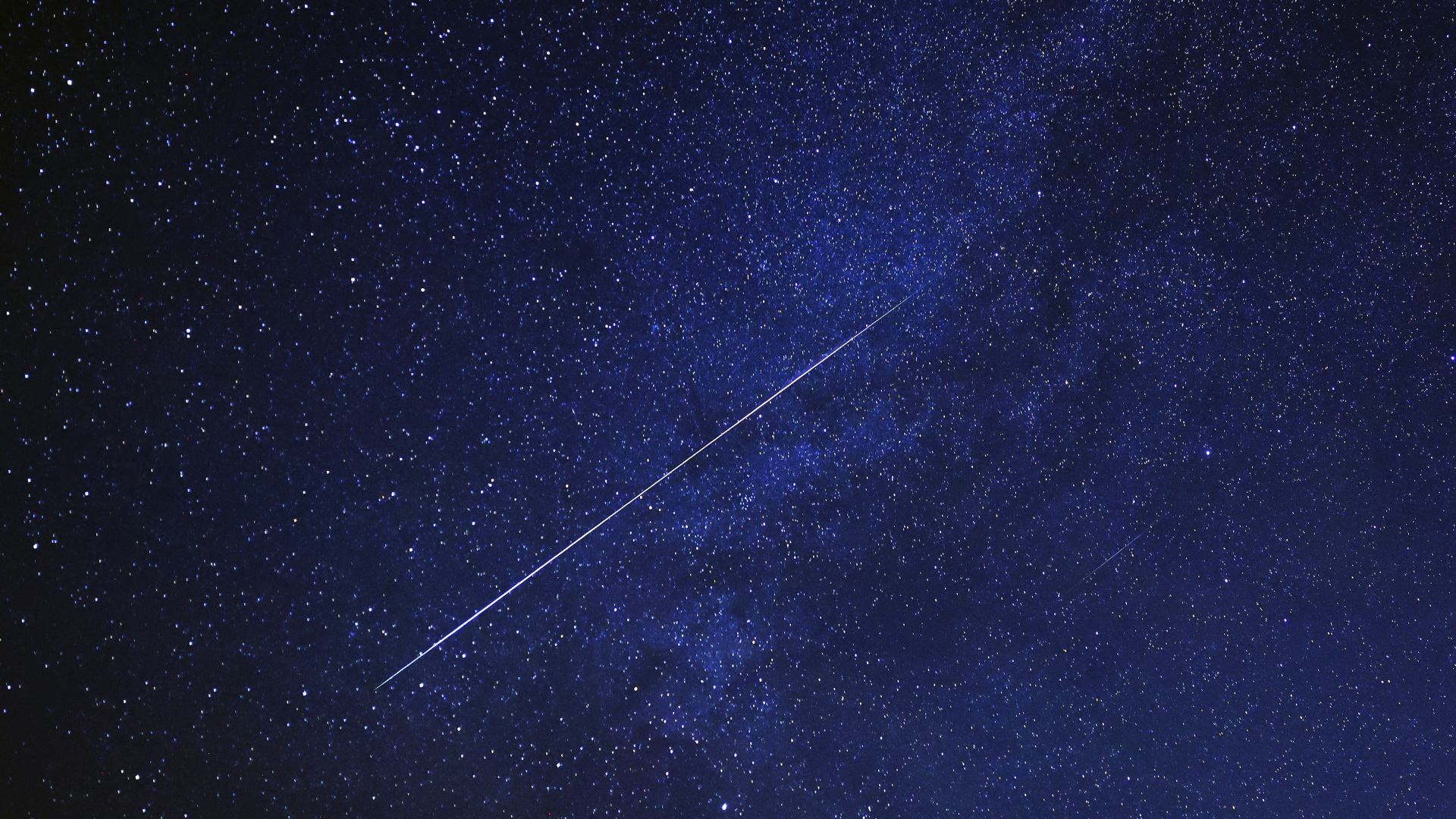Mars 2030: Explore Your Own Virtual Red Planet

Catching a flight to Mars won't be possible for most of us until human trips to the Red Planet become affordable, routine and heck, even possible. NASA is currently hoping to send astronauts to Mars in the 2030s, although some experts recently warned Congress that the agency's budget may not be able to support that goal.
PHOTOS: Immerse Yourself: 10 Amazing Virtual Reality Games
In any case, NASA is sticking to the 2030s timeline for now, and one way it is promoting it is by letting you stroll on the Red Planet in virtual reality. Through a partnership with VR developer Fusion (whose parent companies are Disney-ABC and Univision) and the Massachusetts Institute of Technology (MIT), a new game called "Mars 2030" will premiere at South By Southwest in March and be available to the public later this year.
"NASA has provided us information to achieve the highest level of regard for scientific accuracy through direct contact with various teams working on the many facets of such a complex mission," said Julian Reyes, Fusion virtual reality producer and designer, in an e-mail to Discovery News.
ANALYSIS: The First Humans on Mars will be Virtual Explorers
"We've visited JSC (Johnson Space Center) and Langley Research Center on multiple occasions and had several interviews with scientists dedicated to studying the planet. Our goal is to stay within the bounds of scientific accuracy while still driven by a compelling story that engages the players."
Fusion first got interested in Mars 2030 after reading about a now-famous "Mars One" 2014 feasibility study written by MIT students. Mars One is a privately funded initiative to send humans on a one-way trip to the Red Planet, and is now selecting astronauts for preliminary training while simultaneously trying to raise funds for the journey. While Mars One says the hardware will be capable of keeping humans alive indefinitely, the study cited limitations with their version such as needing frequent resupplies, which will only grow as a colony naturally expands in size.
Breaking space news, the latest updates on rocket launches, skywatching events and more!
ANALYSIS: How Virtual Reality is Hitting the 'Space Workplace'
Fusion contacted lead author Sydney Do (a Ph.D. student at MIT) after the study was publicized. To do the study, Do explained to Discovery News in an e-mail, the students created a simulation of a Mars outpost based on statements and claims by Mars One. Following the activities of four people on Mars, the students then created the systems needed for consumables (gases and water) to keep the crew alive, and the spare parts needed to support these systems. This information then gave them information on what a surface habitat system would need.
"The Mars 2030 experience essentially incorporates insights like these into a more realistic visual environment," said Do, who describes himself as an occasional gamer. "You could say that our research does the back-end work — it determines how much of what resource or technology is needed based on a crew activity profile designed to meet some mission objective, while the Mars 2030 experience visualizes this information and builds a story around it using the state of the art in game development."
ANALYSIS: Huge Space Battle Rumbles Virtual Universe
Do acted as a technical advisor for Fusion, providing information on aspects of Mars such as surface habitats, life support, food, crew activities in the habitat and outside, maintenance and in-situ resource utilization. He even took into account planetary protection protocols to, for example, suggest sterilized robots explore an area before a human went there and threatened any possible microbes.
PHOTOS: Tour 'The Martian' Movie Set… On Mars
The result, Reyes, said, is an "open-world" environment where players can complete missions to explore Mars — making sure the missions address goals of NASA. The game still feels like a game, but Fusion is "staying true to the science of the experience and elaborating on it whenever possible (without making things boring)," he said.
Reyes said the game should be available for late summer if all goes well, first focusing on desktop systems before being expanded to consoles and mobile. "There are several moving parts that we still need to nail down for that to solidify," he added. According to MIT, platforms that will be included eventually include Oculus Rift, Google Cardboard, Samsung VR Gear, iPhone, Android and Twitch.
Originally published on Discovery News.

Elizabeth Howell (she/her), Ph.D., was a staff writer in the spaceflight channel between 2022 and 2024 specializing in Canadian space news. She was contributing writer for Space.com for 10 years from 2012 to 2024. Elizabeth's reporting includes multiple exclusives with the White House, leading world coverage about a lost-and-found space tomato on the International Space Station, witnessing five human spaceflight launches on two continents, flying parabolic, working inside a spacesuit, and participating in a simulated Mars mission. Her latest book, "Why Am I Taller?" (ECW Press, 2022) is co-written with astronaut Dave Williams.


